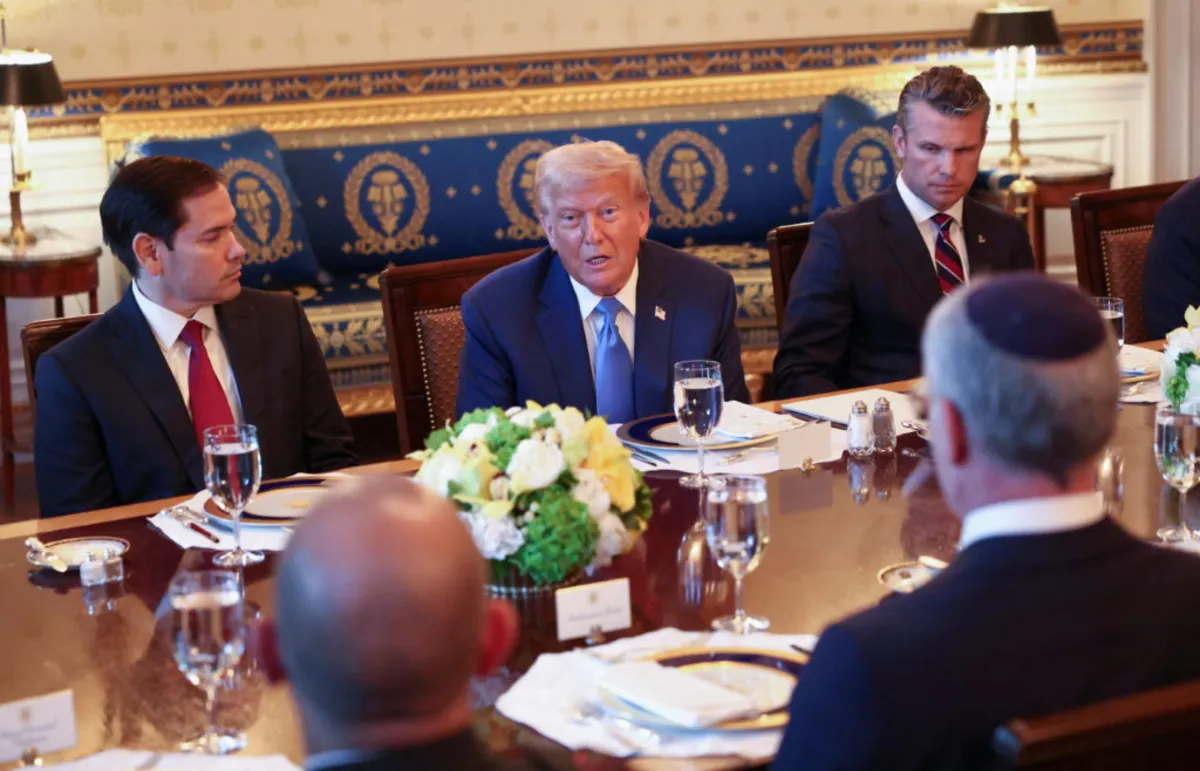
In a surprising turn of events, the rulers of Saudi Arabia, the United Arab Emirates (UAE), and Qatar have found common ground in their outrage following Israel’s military strike targeting Hamas leaders in Qatar's capital, Doha. Just months prior, these leaders had warmly welcomed former U.S. President Donald Trump to their palaces, showcasing a spirit of cooperation with elaborate camel parades. However, the recent attack has ignited a wave of anger and concern among these Gulf nations.
Saudi Crown Prince Mohammed bin Salman has been vocal in his condemnation, urging for an “Arab, Islamic, and international response to confront the aggression” perpetrated by Israel. He characterized Israel’s actions as “criminal practices,” emphasizing the need for a united front among Arab nations. The shift in sentiment is stark, particularly given the historical context of tensions within the region.
The UAE’s Sheikh Mohammed bin Zayed Al Nahyan also expressed his solidarity by visiting Qatar and embracing its ruling emir, a gesture that would have been unfathomable just a few years ago when the UAE and Saudi Arabia spearheaded a boycott against Qatar. They accused Doha of supporting terrorist groups, allegations that Qatar has consistently denied. Sheikh Mohammed condemned Israel’s attack as a violation of “all international laws and norms,” underscoring the seriousness of the situation.
This military action from Israel has triggered deep-seated fears among Gulf leaders regarding the reliability of U.S. support. For decades, the United States has been seen as a protector against regional threats, reminiscent of the days of former Iraqi dictator Saddam Hussein. However, the current dynamics raise questions about whether this commitment extends to Israel's aggressive actions under Prime Minister Benjamin Netanyahu.
These concerns could jeopardize Trump’s objectives in the region, including efforts to end the ongoing Gaza conflict and expand the historic Abraham Accords, which established diplomatic relations between Israel and several Arab nations, including the UAE, Bahrain, and Morocco. Netanyahu's aspirations for new normalization agreements across the Gulf now seem increasingly distant.
In light of the escalating tensions, Trump has taken a step back, asserting that the airstrike “does not advance Israel or America’s goals.” He has reassured Qatar that such actions will not be repeated, yet his unwavering support for Israel, even as it disregards international norms, has raised alarm among Gulf states. Qatar’s Prime Minister, Sheikh Mohammed bin Abdulrahman Al Thani, labeled the strike an act of “state terror” and directly criticized Netanyahu for his “barbarism.”
Sheikh Mohammed expressed skepticism about the viability of Qatar's mediation role in the ongoing conflict, questioning the validity of current negotiations following the strike. Israel's actions resulted in the deaths of at least five Hamas members and a member of Qatar’s security forces, further complicating the situation. In retaliation, Netanyahu has threatened additional strikes if Qatar continues to host Hamas, a group it has acted as a mediator for with U.S. backing.
The UAE’s foreign ministry has condemned Netanyahu’s remarks, stating that any aggression against a member of the Gulf Cooperation Council (GCC) poses a threat to the collective security of the Gulf region. The GCC, which includes both the UAE and Qatar, has historically collaborated to maintain regional stability, but current tensions are testing this unity.
The UAE, which played a pivotal role in the 2020 Abraham Accords, is now facing frustration over Israel's actions. While the Israel-UAE agreement has survived two years of regional strife, its stability is at risk if Israel continues its current path. The UAE has previously warned that any attempt by Israel to annex the occupied West Bank would cross a “red line,” signaling potential consequences without detailing specific actions.
Both Trump and Netanyahu have expressed hope for a normalization agreement with Saudi Arabia, a nation that holds significant influence in the region. However, Saudi Arabia has made it clear that it will only pursue such ties if there is a clear path towards Palestinian statehood, a demand that contradicts the current Israeli government's stance.
The situation remains fluid, and with rising tensions and conflicting interests, the prospect of future agreements between Israel and Gulf nations may become increasingly challenging. The U.S. commitment to maintaining stability in the region will be crucial as these dynamics unfold.